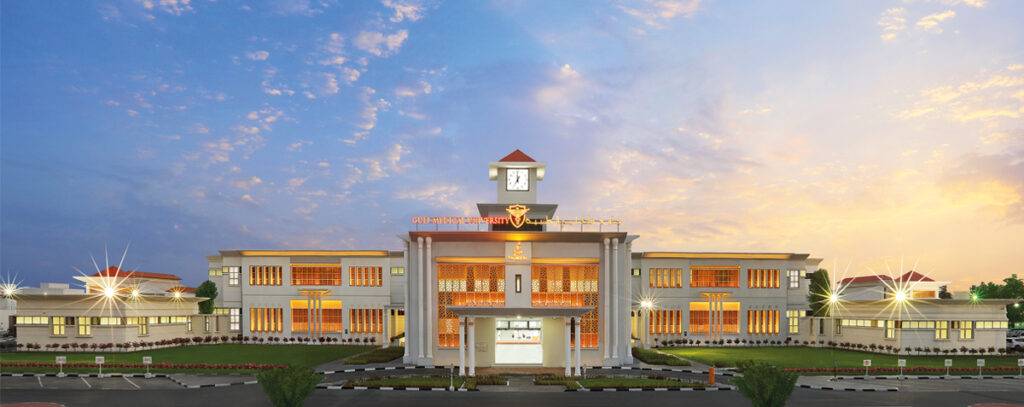Did you know that both undergraduate and postgraduate medical training are available in the UAE? The leadership of the United Arab Emirates places a high priority on both healthcare and education. They have been working to foster and promote opportunities for medical education and academic centers in the UAE. Investment from both the public and private sectors has resulted in increased capacity for medical education and training in the UAE.
Currently, eight universities in the UAE offer undergraduate medical degree courses. There is also a wide range of postgraduate training programs, including internships, residency programs, and fellowships. The number of undergraduate and postgraduate training opportunities is steadily increasing.
Medical Degree Courses in the UAE
These universities offer undergraduate medical degree courses. Medical students undertake clinical training in both government and private sector hospitals locally through academic partnerships.
Abu Dhabi:
- Khalifa University Abu Dhabi City https://www.ku.ac.ae/academics/college-of-medicine-and-health-sciences
- United Arab Emirates University (UAEU) – Al Ain
- https://www.uaeu.ac.ae/en/cmhs
Dubai:
- Mohammed Bin Rashid University of Medicine and Health Sciences (MBRU)
- Dubai Medical College for Girls (DMCG)
- https://www.dmcg.edu
Northern Emirates:
- University of Sharjah (UoS) https://www.sharjah.ac.ae/en/academics/Colleges/Medicine/Pages/default.aspx
- Ajman University
https://www.ajman.ac.ae/en/academics/academic-programs-majors/programs/doctor-of-medicine-md

- Gulf Medical University – Ajman
- RAK Medical and Health Sciences University – Ras Al Khaimah
https://www.rakmhsu.ac.ae/rak-college-of-medical-sciences
Postgraduate Medical Training
Recently qualified doctors can apply for internships and residency programs within the UAE for a range of specializations. Following completion of training, specialist examinations and clinical assessments are conducted. This ensures that physicians meet rigorous standards established by the Accreditation Council for Graduate Medical Education (ACGME).
Accreditation boards available in the UAE include the National Institute for Health Specialties (NIHS—Emirati Board), the Arab Board for Health Specializations (ABHS), and others. These include the Jordanian Medical Board and the Royal College of Physicians and Surgeons of Canada, depending on the location of training. Internships, residencies, and fellowships are available in both government and private sector teaching hospitals. These are licensed and regulated by the Ministry of Health nationally and local authorities within each emirate.
Abu Dhabi
In Abu Dhabi, medical training centers are regulated by the Department of Health. Government hospitals such as Sheikh Khalifa Medical City, Sheikh Shakhbout Medical City, and Tawam Hospital are included. Also, those in the private sector, such as Cleveland Clinic Abu Dhabi and Burjeel Medical City, offer a range of internships, residency programs, and fellowships.
Dubai
Dubai Health, Dubai’s integrated academic health system, oversees medical training in the Emirate of Dubai. The Mohammed Bin Rashid University of Medicine and Health Sciences (MBRU) offers internships, residencies, and fellowships across medical, dental, and surgical specialties. These include rotations in government sector hospitals such as Rashid Hospital, Dubai Hospital, Latifa Hospital, Al Jalila Children’s Specialty Hospital, and Dubai Dental Hospital.
Interns and residents also receive training in a growing number of private hospitals under the authority of the Dubai Health Authority. These private hospitals include but are not limited to American Hospital, King’s College Hospital London Dubai, Saudi German Hospital, Mediclinic Middle East, and others. These hospitals also include Aster DM Healthcare, Medcare, Fakeeh University Hospital, and Dubai Medical University Hospital.
The Northern Emirates of the UAE
Medical education in the northern Emirates of the UAE is regulated by Emirates Health Services. Training is carried out at University Hospital Sharjah and Thumbay University Hospitals, amongst others.
What does the future hold for medical education in the UAE?
As the UAE’s healthcare sector continues to grow, so do opportunities for medical education and specialist training. The range of specialist residency training programs will continue to increase. This strengthens the country’s dynamic and growing health system. Additionally, the increasing number of postgraduate medical training pathways provides highly skilled specialist consultants relocating to work in the UAE with opportunities for teaching and mentoring junior doctors.
There is a supportive environment for medical research and continuing professional development in the UAE. The country is established as a regional hub for conferences and events.
Related Articles-


